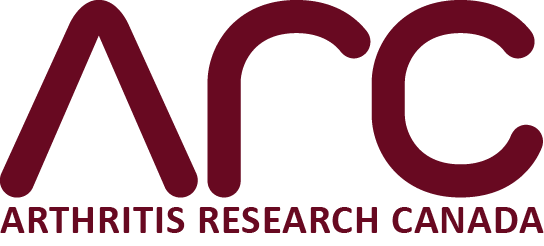In Lesson 3, a leading rheumatologist guides you through the full range of advanced therapies available today. The therapies are grouped by type and include basic information, such as each one’s generic and brand name, which disease molecule it targets, and how it is taken, to help you and your rheumatologist decide which one might be best for you.
Remember, each person’s inflammatory arthritis is unique: No single treatment works for all patients. Many people with inflammatory arthritis need to change their treatment at least once, twice or many times during their lifetime.
The information in this lesson will provide you with all the terminology and language to support you to have the best conversation possible with your rheumatologist or other health care provider about advanced therapy, but does not suggest any specific therapy or therapies. The quiz is an interactive and printable PDF.

New naming system for arthritis DMARDs
DMARDs now come in all “shapes and sizes” and can be taken by pill, self-injection and infusion (IV or intravenously). Each DMARD works in a unique way and the decision about which one is best for you is perhaps the most important conversation you can have with your rheumatologist.
Given the recent arrival of new classes of medicines for some types of inflammatory arthritis, such as biosimilars and Janus kinase (JAK) inhibitors, a new naming system for disease- modifying anti-rheumatic drugs (DMARDs) is being adopted in North America and Europe.

Synthetic (or chemical) DMARDs are now divided into:
csDMARDs: Conventional synthetic DMARDs include medications such as methotrexate, sulfasalazine, leflunomide, hydroxychloroquine and others.
tsDMARDs: Targeted synthetic DMARDs include only those medications that were specifically developed to target a molecular structure involved in inflammatory arthritis, such as tofacitinib, baricitinib, apremilast or upadacitinib.

Biological DMARDs are now divided into:
boDMARDs: Originator biologic DMARDs include abatacept, adalimumab (Humira®), anakinra, belimumab, canakinumab, certolizumab pegol, denosumab, etanercept (Enbrel®), golimumab, infliximab (Remicade®), ixekizumab, rituximab (Rituxan®), sarilumab, secukinumab, tocilizumab or ustekinumab
bsDMARDs: Biosimilar biologic DMARDs include adalimumab (Amgevita®), adalimumab (Hadlima®), adalimumab (Hulio®), adalimumab (Hyrimoz®), adalimumab (Idacio®), etanercept (Brenzys®), etanercept (Erelzi®), infliximab (Avsola®), infliximab (Inflectra®),infliximab (Remsima®), infliximab (Renflexis®), rituximab (Riabni®), rituximab (Riximyo®), rituximab (Ruxience®), or rituximab (Truxima®)

tsDMARDs: Targeted synthetic DMARDs (“targeted small molecule medications”)
Because no two people with an inflammatory arthritis respond to the same medication in the same way—and many do not respond nearly well enough or at all—there is a need for more medications to treat this serious group of diseases. Research into treatment options has led to the introduction of a new advanced therapy called targeted synthetic DMARDS (tsDMARDs), or targeted small molecule medications.
These new advanced therapies come in pill form and work in a whole new way. They’re not biologics, which target inflammation from the outside of cells. Instead, they prevent an inflammatory immune response from within cells by decreasing your immune system’s ability to make certain enzymes that can lead to RA symptoms.

Filling an advanced therapy prescription
During your visit, your rheumatologist will give you a written prescription for your advanced therapy, along with the name of the patient support program for your medication that will help you organize reimbursement, pharmacy or infusion centre locations, and other support services.

Monitoring safety and efficacy after starting an advance therapy
You and your rheumatologist will monitor the safety and effectiveness of your advanced therapy as part of your routine care. When you attend your appointment with your rheumatologist or rheumatology nurse, they will assess how your disease is responding to or responding well enough to the therapy. If you feel you are experiencing a significant side effect, contact your rheumatologist who will be able to assess whether it is the medication or some other reason.
Tools that help measure disease activity can include:
- A patient’s self-assessment of how they feel (like the “HAQ”) and how well you’re able to function daily;
- The rheumatologist’s assessment of the patient’s symptoms, using standardized examination techniques, such as a count of your tender or swollen joints, and patient questionnaires. Different rheumatologists use different scoring systems to measure disease activity, including: DAS 28, CDAI, SDAI, and RAPID3.
- Laboratory tests, like measures of inflammatory proteins in the blood that show to what extent inflammatory arthritis is being affected by treatment. These are often called inflammatory markers and include:
- Erythrocyte sedimentation rate (ESR) or “sed rate”
- C-reactive protein or CRP
- Rheumatoid factor or RF
- Anti-cyclic citrullinated peptide proteins or “anti-CCP”

Advanced therapy public and private drug plan coverage in Canada
Advanced therapies in inflammatory arthritis cost significantly more than older csDMARDs, such as methotrexate. An advanced therapy can cost thousands of dollars each year rather than hundreds. In Canada, public and private insurance plans do provide reimbursement for nearly all the advanced therapies for inflammatory arthritis.
To be eligible for reimbursement coverage, most public and private drug plans require all advanced therapies to be prescribed by a rheumatologist and patients must meet certain criteria to ensure that the advanced therapy prescription follows best clinical practice guidelines, given their cost.
Public and private insurance coverage for targeted small molecule medications for inflammatory arthritis is mostly available but varies by province and carrier.
Depending on your public or private insurance coverage, when you are prescribed an originator biologic, reimbursement policy may only provide reimbursement for the biosimilar version, not the originator or "brand name".

Transitioning from an originator biologic to a biosimilar biologic
Health Canada considers well-controlled transitions from an originator biologic to its biosimilar biologic in an approved indication to be acceptable. Health Canada recommends that a decision to transition or “switch” a patient being treated with an originator biologic drug to a biosimilar, or between any biologics, be made by the treating physician in consultation with the patient, taking into account any policies of the relevant jurisdiction. If a provincial, territorial, federal or private payer decides to mandate patients to transition from an originator to a biosimilar through a drug formulary policy, then it is imperative to give treating physicians and their patients the information they need to have a full conversation about their transition, in advance of the transition, to understand their quality and continuation of care will remain unchanged.
There are currently more than 75 published international biosimilars transition studies, in rheumatology, gastroenterology, dermatology and other diseases, which show little to no difference between biosimilars and their originators when it comes to results in patients.
Based on scientific evidence and the lived experience of patients in North America and Europe, rheumatologists across Canada are now regularly prescribing biosimilars for newly initiated inflammatory arthritis patients. Rheumatologists are also beginning to transition patients, not doing well on their current originator biologic or biosimilar (“medical transition”), to another originator biologic or biosimilar, based on a decision made with the patient. Transitioning when medically required is important to achieve the best disease control and outcomes.
To achieve significant cost savings, provincial and private drug benefit plans are also considering implementing policy transition (non-medical switch) requiring patients to move from their current originator biologic to its biosimilar biologic. Policy transition has been successfully implemented in many European countries and in thousands of inflammatory arthritis patients with no compromise to patient safety, effectiveness or quality of care.
Prior to transitioning patients, both rheumatologists and their patients must be fully informed about the policy requiring the transition and have all available information about the biosimilar, such as details about the reimbursement policy and patient program information, including contact names and phone numbers.
There are several places patients transitioning from one biologic to another (whether from originator to biosimilar, originator to originator, or biosimilar to originator) can go for information and support, including:
- Your rheumatologist or rheumatology nurse or support staff;
- Public or private drug formulary web sites;
- Patient organizations such as Arthritis Consumer Experts; and,
- Biosimilars•Exchange — the only research-based information on biosimilars written by and for patients with inflammatory arthritis

Questions to ask and things to consider with your rheumatologist before you decide on your advanced therapy for inflammatory arthritis
- Is there one or a few advanced therapies that you feel may work the best for me? If yes, why?
- What are the different ways to take the ones you think might work best for me at this point in my disease course?
- What are the most common and the most serious side effects for the advanced therapy you are recommending?
- Do I have to stop what I’m taking now to clear it from my body before starting on the advanced therapy you recommend?
- Can I stop any of the other medications I’m currently taking when I start on the advanced therapy you recommend? If so, when?
- How long do I have to be off one or all my current medications before I can start on the advanced therapy you recommend?
- Can I get pregnant while taking the advance therapy you recommend? How quickly do I need to decide?

Learn more about advanced therapies for inflammatory arthritis
- To learn more about advanced therapies for inflammatory arthritis, visit Arthritis Consumer Experts’ website, JointHealth.org to find more detailed information in their JointHealthTM Medications Guide
- Go to the ACE Arthritis Medications Report Card, which provides a closer look at public drug plan reimbursement coverage for advanced therapies for inflammatory arthritis
Watch the coaching video

Arthritis Consumer Experts
© 2000-2022 ACE Planning and Consulting Inc.

ACE thanks Arthritis Research Canada (ARC) for its scientific review of ACE and JointHealthTM information and programs.

Arthritis Consumer Experts
© 2000-2022 ACE Planning and Consulting Inc.

ACE thanks Arthritis Research Canada (ARC) for its scientific review of ACE and JointHealthTM information and programs.



